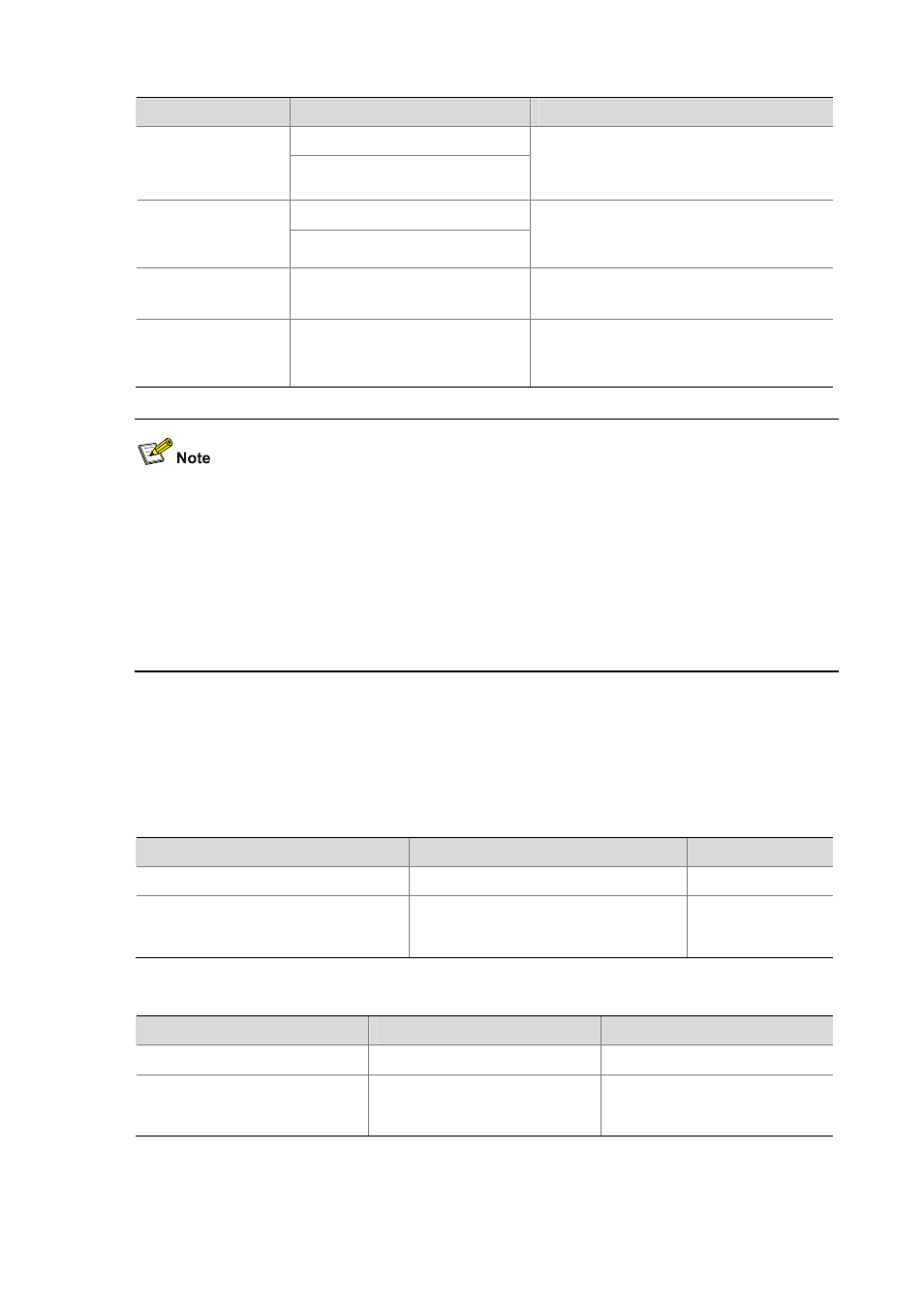Exporting the rsa or dsa public key, Exporting the rsa or dsa public key -6 – H3C Technologies H3C WX3000 Series Unified Switches User Manual
Page 478

46-6
To do…
Use the command…
Remarks
rsa local-key-pair create
Generate an RSA key
pair
public-key local create rsa
Required
Use either command
By default, no RSA key pair is created.
rsa local-key-pair destroy
Destroy the RSA key
pair
public-key local destroy rsa
Optional
Use either command to destroy the configured
RSA key pair.
Generate a DSA key
pair
public-key local create dsa
Required
By default, no DSA key pair is created.
Destroy the DSA key
pair
public-key local destroy dsa
Optional
Use the command to destroy the configured
DSA key pair.
z
After an RSA key pair is generated, you can execute the display rsa local-key-pair public or
display public-key local rsa public
command, which will display two public keys (the host public
key and server public key) if the device works in SSH1.x-compatible mode, or only one public key
(the host public key) if the device works in SSH2 mode.
z
The command for generating a key pair can survive a reboot. You only need to configure it once.
z
Some third-party software, for example, WinSCP, requires that the modulo of a public key be
greater than or equal to 768. Therefore, a local key pair of more than 768 bits is recommended.
Exporting the RSA or DSA Public Key
You can display the generated RSA or DSA key pair on the screen in a specified format, or export it to a
specified file for configuring the key at a remote end.
Follow these steps to export the RSA public key:
To do…
Use the command…
Remarks
Enter system view
system-view
—
Display the RSA key on the screen in a
specified format or export it to a specified
file
public-key local export rsa
{ openssh |
ssh1
| ssh2 } [ filnename ]
Required
Follow these steps to export the DSA public key:
To do…
Use the command…
Remarks
Enter system view
system-view
—
Display the DSA key on the screen
in a specified format or export it to
a specified file
public-key local export dsa
{ openssh | ssh2 } [ filnename ]
Required
